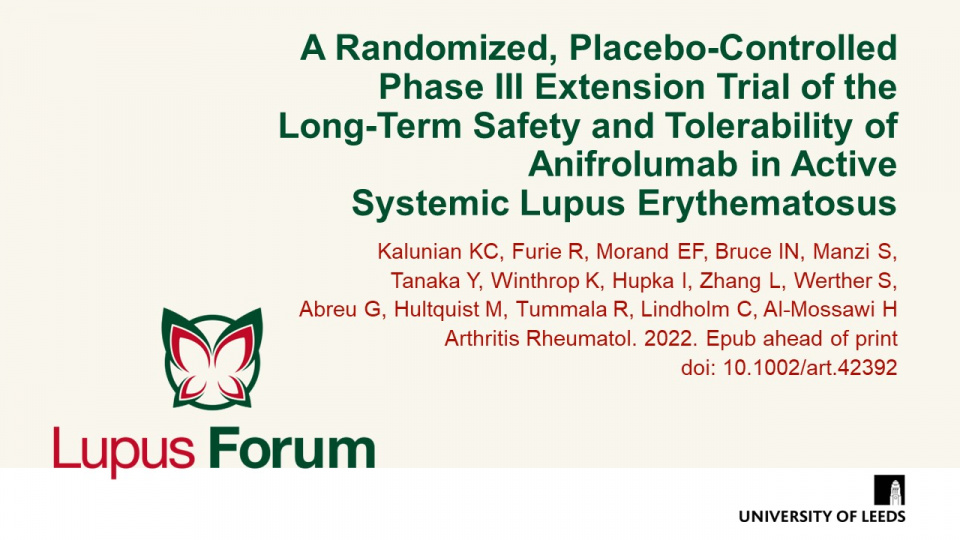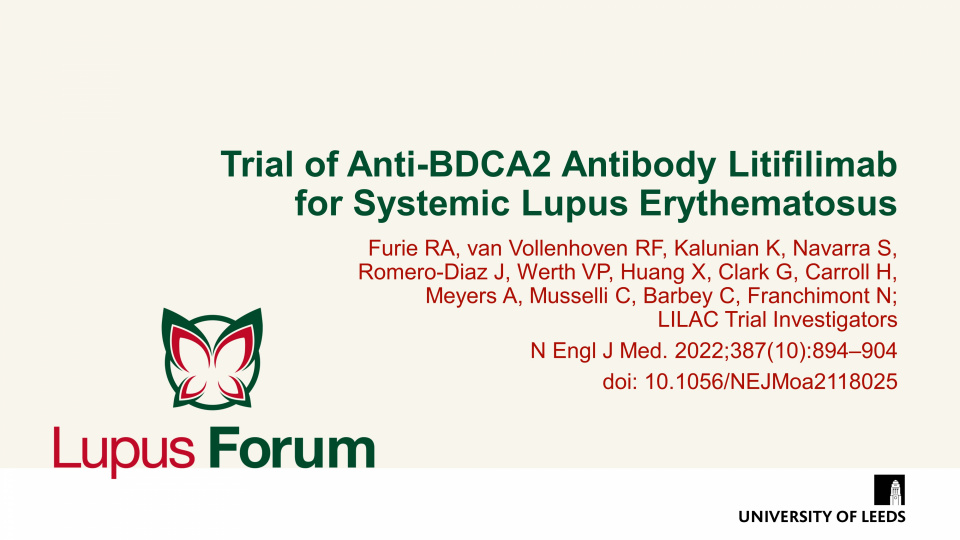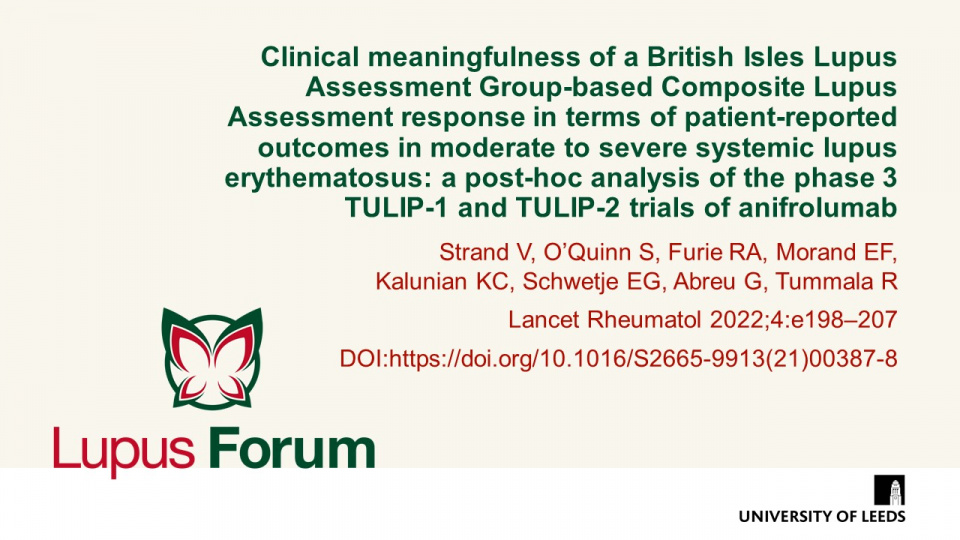Publications
Find coverage of the latest original articles on Lupus, focusing on those with data on therapeutic interventions and those that have clinical impact.
A Randomized, Placebo-Controlled Phase III Extension Trial of the Long-Term Safety and Tolerability of Anifrolumab in Active Systemic Lupus Erythematosus
Arthritis Rheumatol. 2022. Epub ahead of print doi: 10.1002/art.42392
Long-term extension study shows an acceptable long-term safety profile of anifrolumab in SLE, in addition to sustained improvements in disease activity and reduction in glucocorticoid use.
Trial of Anti-BDCA2 Antibody Litifilimab for Systemic Lupus Erythematosus
N Engl J Med. 2022;387(10):894–904 doi: 10.1056/NEJMoa2118025
Phase 2 study, in patients with systemic lupus erythematosus, shows that litifilimab is associated with a greater reduction from baseline in the number of swollen and tender joints than placebo, over a period of 24 weeks.
Clinical meaningfulness of a British Isles Lupus Assessment Group-based Composite Lupus Assessment response in terms of patient-reported outcomes in moderate to severe systemic lupus erythematosus: a post-hoc analysis of the phase 3 TULIP-1 and TULIP-2 trials of anifrolumab
Lancet Rheumatol 2022;4:e198–207
In patients with moderate-to-severe SLE, British Isles Lupus Assessment Group-based Composite Lupus Assessment (BICLA) responders report improvements in disease activity, health-related quality of life, fatigue, and pain.




